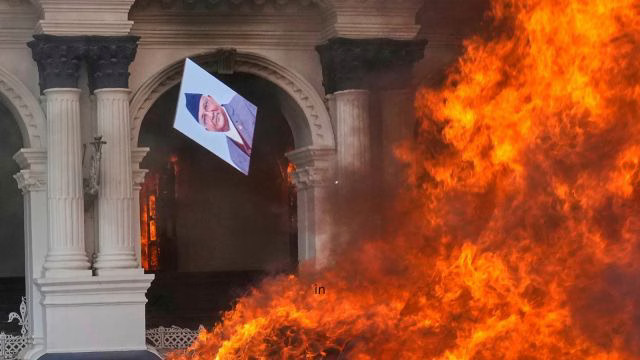Kathmandu ablaze?: Gen Z uprising topples government, engulfs Nepal in chaos
By | International | 10-Sep-2025 13:37:26

News Story
Kathmandu erupted in flames on September 9 as Nepal’s Generation Z
protesters unleashed fury against a political system they say has long shielded
the powerful from accountability. The unrest, sparked by mounting anger at
corruption and the government’s crackdown on social media, left the capital in
chaos and the nation without a functioning government.
The protests follow the deadly September 8 crackdown
in which police fired on demonstrators, killing 19 young protesters. Their
deaths ignited an unprecedented wave of anger, as youths born between 1996 and
2012 — mobilized largely through online platforms like the Facebook page Next
Generation Nepal — took to the streets, targeting symbols of political power
across Kathmandu and other cities.
Former Prime Ministers K P Sharma Oli, Pushpa
Kamal Dahal ‘Prachanda’, Madhav Kumar Nepal, Jhala Nath Khanal, and Sher
Bahadur Deuba became direct targets. Several were assaulted, their homes
torched, and in some cases, their families injured. Rajyalaxmi Chitrakar, wife
of former PM Khanal, succumbed to severe burns when her residence was set
ablaze. Finance Minister Bishnu Prasad Paudel and MP Eknath Dhakal were
publicly humiliated, paraded through the streets by enraged protesters.
The rampage extended beyond residences. Nakkhu
Central Jail in Lalitpur was set on fire, freeing political detainee Rabi Lamichhane
of the Rastriya Swatantra Party, a vocal critic of the Oli regime. Meanwhile,
Prime Minister Oli resigned, and President Ram Chandra Poudel remained under
military protection at an undisclosed location.
The protests were catalyzed in part by the government’s
ban on 26 social media platforms, which removed the primary channel for youth
expression and organizing. While the protesters demanded the lifting of this
digital ban — a demand met Monday evening—their broader grievances reflect deep
frustration over systemic corruption, nepotism, social inequality, and lack of
employment opportunities.
With no government in place, the Nepal Army
has taken over security operations, urging calm while facilitating dialogue
among political factions. Army Chief General Ashok Raj Sigdel and figures such
as Kathmandu Mayor Balen Shah have called for national reconciliation, even as
the country faces a potential constitutional crisis.
Support for the protests has come from
emerging political voices, including former rapper-turned-politician Balen Shah
and media personality-turned-lawmaker Rabi Lamichhane. Even former King
Gyanendra Shah issued a public appeal for dialogue, suggesting a willingness to
play a stabilizing role reminiscent of the pre-republic monarchy.
As the smoke rises over Kathmandu, Nepal stands at a crossroads. The anger of its youngest generation has not only toppled a government but challenged the very foundations of its republic. The coming days will determine whether the nation can reconcile its divisions—or descend further into turmoil.